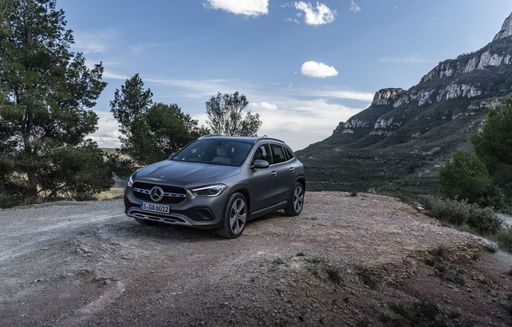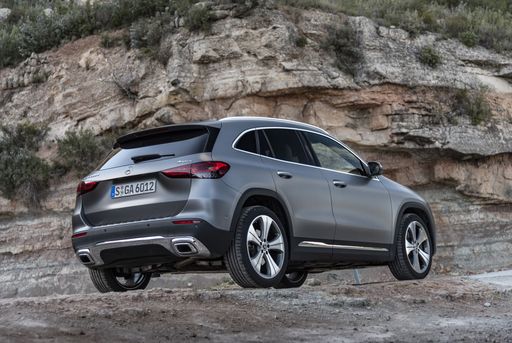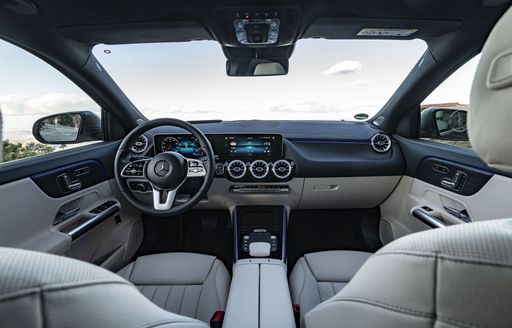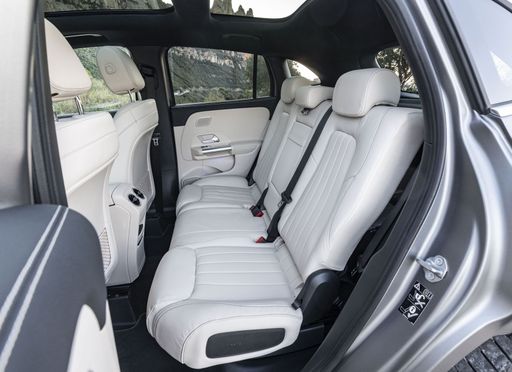Hyundai Tucson vs Mercedes GLA - Differences and prices compared
Compare performance (288 HP vs 421 HP), boot space and price (20900 £ vs 38800 £ ) at a glance. Find out which car is the better choice for you – Hyundai Tucson or Mercedes GLA?
Costs and Efficiency:
Price and efficiency are key factors when choosing a car – and this is often where the real differences emerge.
Hyundai Tucson has a decisively advantage in terms of price – it starts at 20900 £ , while the Mercedes GLA costs 38800 £ . That’s a price difference of around 17939 £.
Fuel consumption also shows a difference: Hyundai Tucson manages with 2.70 L and is therefore barely noticeable more efficient than the Mercedes GLA with 2.90 L. The difference is about 0.20 L per 100 km.
As for electric range, the Mercedes GLA performs hardly perceptible better – achieving up to 74 km, about 4 km more than the Hyundai Tucson.
Engine and Performance:
Under the bonnet, it becomes clear which model is tuned for sportiness and which one takes the lead when you hit the accelerator.
When it comes to engine power, the Mercedes GLA has a clearly perceptible edge – offering 421 HP compared to 288 HP. That’s roughly 133 HP more horsepower.
In acceleration from 0 to 100 km/h, the Mercedes GLA is convincingly quicker – completing the sprint in 4.30 s, while the Hyundai Tucson takes 7.50 s. That’s about 3.20 s faster.
In terms of top speed, the Mercedes GLA performs distinct better – reaching 270 km/h, while the Hyundai Tucson tops out at 204 km/h. The difference is around 66 km/h.
There’s also a difference in torque: Mercedes GLA pulls noticeable stronger with 500 Nm compared to 379 Nm. That’s about 121 Nm difference.
Space and Everyday Use:
Cabin size, boot volume and payload all play a role in everyday practicality. Here, comfort and flexibility make the difference.
Both vehicles offer seating for 5 people.
In curb weight, Hyundai Tucson is slight lighter – 1542 kg compared to 1570 kg. The difference is around 28 kg.
In terms of boot space, the Hyundai Tucson offers distinct more room – 620 L compared to 435 L. That’s a difference of about 185 L.
In maximum load capacity, the Hyundai Tucson performs distinct better – up to 1799 L, which is about 369 L more than the Mercedes GLA.
When it comes to payload, Hyundai Tucson barely noticeable takes the win – 545 kg compared to 500 kg. That’s a difference of about 45 kg.
Who wins the race in the data check?
The Mercedes GLA holds a solid overall lead in the objective data comparison.
This result only shows which model scores more points on paper – not which of the two cars feels right for you.
Costs and Consumption
View detailed analysis
Engine and Performance
View detailed analysis
Dimensions and Body
View detailed analysis

Mercedes GLA
Hyundai Tucson
Hyundai Tucson marries bold, sculpted looks with a clever, roomy cabin that feels smarter than its price tag suggests. It's composed on the road, easy to live with day-to-day, and a sensible choice for buyers who want SUV style without the showroom theatrics.
details




Mercedes GLA
The Mercedes GLA blends Mercedes style with compact crossover practicality, looking sharper than its size suggests while still feeling purposeful around town. Inside it serves up premium materials and tech-forward ergonomics, and the composed ride makes it an appealing pick for buyers who want luxury wrapped in a city-friendly package with a wink of adventurous spirit.
details



Costs and Consumption |
|
|---|---|
|
Price
20900 - 47900 £
|
Price
38800 - 75300 £
|
|
Consumption L/100km
2.7 - 7.6 L
|
Consumption L/100km
2.9 - 9.5 L
|
|
Consumption kWh/100km
-
|
Consumption kWh/100km
-
|
|
Electric Range
63 - 70 km
|
Electric Range
74 km
|
|
Battery Capacity
-
|
Battery Capacity
12.90 kWh
|
|
co2
62 - 172 g/km
|
co2
66 - 216 g/km
|
|
Fuel tank capacity
52 - 54 L
|
Fuel tank capacity
35 - 51 L
|
Dimensions and Body |
|
|---|---|
|
Body Type
SUV
|
Body Type
SUV
|
|
Seats
5
|
Seats
5
|
|
Doors
5
|
Doors
5
|
|
Curb weight
1542 - 1893 kg
|
Curb weight
1570 - 1810 kg
|
|
Trunk capacity
546 - 620 L
|
Trunk capacity
385 - 435 L
|
|
Length
4525 - 4535 mm
|
Length
4412 - 4443 mm
|
|
Width
1865 mm
|
Width
1834 - 1849 mm
|
|
Height
1650 mm
|
Height
1590 - 1616 mm
|
|
Max trunk capacity
1795 - 1799 L
|
Max trunk capacity
1385 - 1430 L
|
|
Payload
518 - 545 kg
|
Payload
480 - 500 kg
|
Engine and Performance |
|
|---|---|
|
Engine Type
Petrol, Full Hybrid, Plugin Hybrid, Diesel MHEV
|
Engine Type
Plugin Hybrid, Petrol MHEV, Diesel, Petrol
|
|
Transmission
Manuel, Automatic
|
Transmission
Automatic
|
|
Transmission Detail
Manual Gearbox, Dual-Clutch Automatic, Automatic Gearbox
|
Transmission Detail
Dual-Clutch Automatic
|
|
Drive Type
Front-Wheel Drive, All-Wheel Drive
|
Drive Type
Front-Wheel Drive, All-Wheel Drive
|
|
Power HP
136 - 288 HP
|
Power HP
116 - 421 HP
|
|
Acceleration 0-100km/h
7.5 - 11.6 s
|
Acceleration 0-100km/h
4.3 - 11 s
|
|
Max Speed
196 - 204 km/h
|
Max Speed
190 - 270 km/h
|
|
Torque
250 - 379 Nm
|
Torque
230 - 500 Nm
|
|
Number of Cylinders
4
|
Number of Cylinders
4
|
|
Power kW
100 - 212 kW
|
Power kW
85 - 310 kW
|
|
Engine capacity
1598 cm3
|
Engine capacity
1332 - 1991 cm3
|
General |
|
|---|---|
|
Model Year
2025
|
Model Year
2024 - 2025
|
|
CO2 Efficiency Class
F, D, E, B
|
CO2 Efficiency Class
B, E, F, G
|
|
Brand
Hyundai
|
Brand
Mercedes-Benz
|
What drive types are available for the Hyundai Tucson?
Available configurations include Front-Wheel Drive or All-Wheel Drive.




